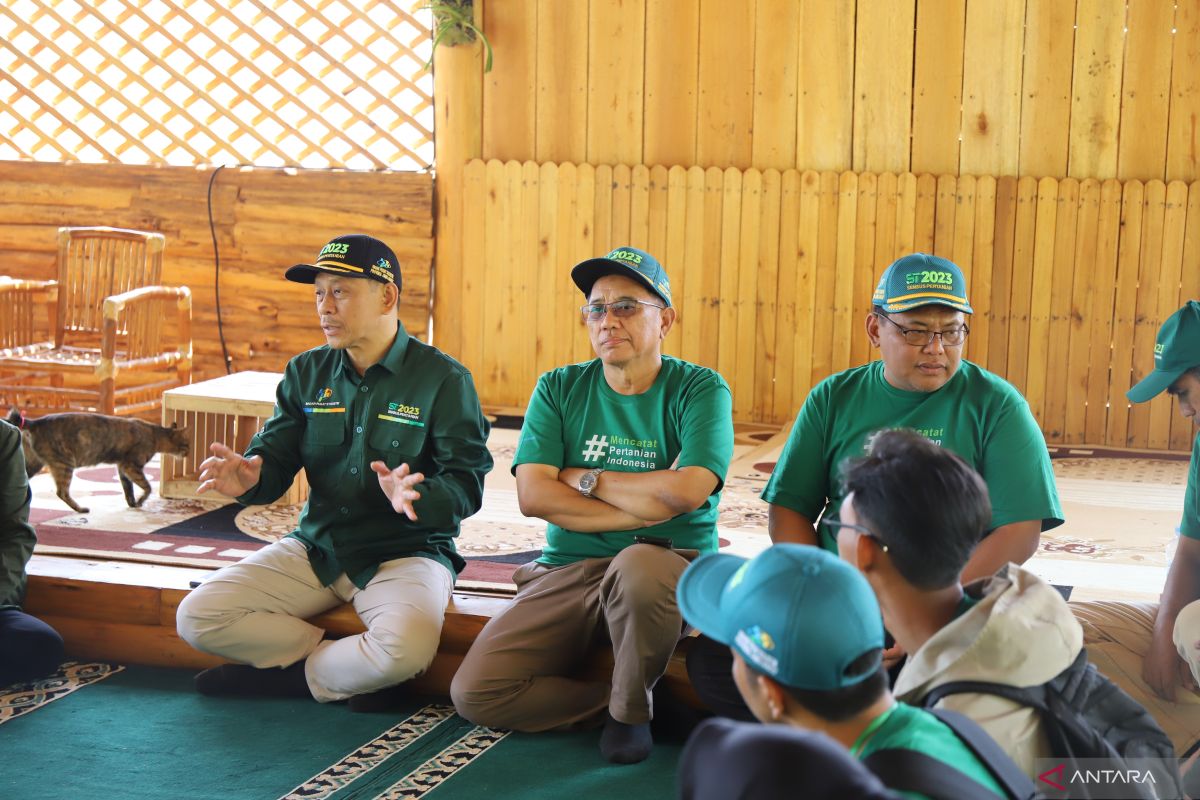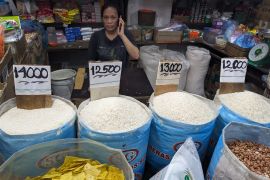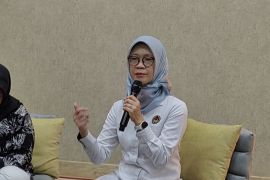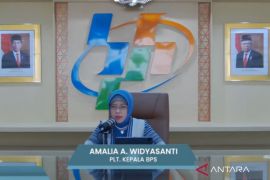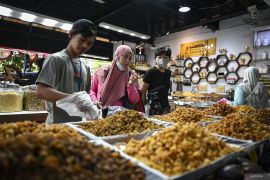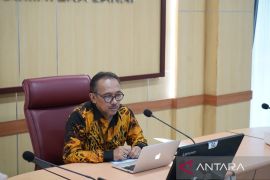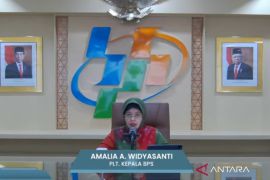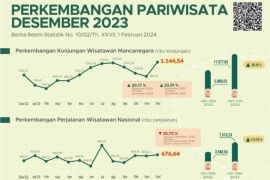The 2023 Agriculture Census (ST2023), being carried out from June 1 to July 31, 2023, is the 7th edition of the census. The census is aimed at presenting a more comprehensive overview of the current situation of Indonesia's agriculture sector.
The Directorate of Food Crops and Plantation Statistics at Statistics Indonesia (BPS) noted that innovation continues to be made in the Agricultural Census to be able to provide better data.
In ST2023, there is an innovation, namely the implementation of three data collection methods: Paper Assisted Personal Interviewing (PAPI), Computer-Assisted Personal Interviewing (CAPI), and Computer-Assisted Web Interviewing (CAWI).
The three methods are deemed necessary, as the coverage of respondents in the 2023 edition is wider, not only for agricultural households but also include agriculture businesses.
The respondents targeted in ST2023 comprise individual agriculture enterprises (UTP), for instance, individual farmers. The census also targets legal agricultural companies (UPB) and other agriculture enterprises (UTL), which include farmer groups.
With the PAPI method, the census officers can use a paper-based questionnaire, while with the CAPI method, officers can use the electronic questionnaire on their gadgets or smartphones to interview respondents.
As for the CAWI method, respondents can answer the questionnaire independently through the official web page: sensus.bps.go.id/st2023.
Information collected in the census, comprised types of plants, land area, cultivation techniques, and profiles of farmers based on names and addresses.
It also includes irrigation models, land ownership status, farmer demographic structure, including millennial farmers, as well as information on agricultural micro, small, and medium enterprises (MSMEs) and business actors.
The questionnaire contains questions related to the seven subsectors of agriculture: food crop, horticulture, plantation, fishery, animal husbandry, forestry, and agricultural services.
Thus, questions asked by officers depend on the type of agriculture subsector that each respondent works in.
In addition, the questions will depend on the agricultural commodities that each respondent works on. For instance, if the respondent is a rice farmer, then the questions asked will be about when they plant or harvest rice and how much rice they can produce in each harvest.
One agriculture data
In 2023, the goal of the Agriculture Census is to provide data on the structure of agriculture, particularly related to the smallest administration units, provide data that can be used as a benchmark for current agricultural statistics, and provide a sampling frame for follow-up agricultural surveys.
There are several targeted results of the ST2023, namely, first, national agriculture main data to complete data that can be used to tackle current strategic issues in the agriculture sector.
The second result is data on smallholder farmers or farmers, who own or rent agricultural land of less than 0.5 hectares. The third result is agricultural data for global agendas, for example, Sustainable Development Goals (SDGs) in the agricultural sector.
The fourth result is data of small-scale farmers in accordance with the standards of the Food and Agriculture Organization (FAO). Lastly, the fifth result is agricultural statistics both in tabular (bilingual publication) and geospatial forms.
By participating in the census, agriculture business players will contribute to supporting the government in improving the welfare of farmers in Indonesia.
To this end, all farmers, including young farmers or millennial farmers in cities and villages, are encouraged to take part in the census. The participation of all agriculture business players is highly needed.
BPS' Main Secretary, Atqo Mardiyanto, emphasized that business players should not need to harbor concerns about the confidentiality of answers they give for the census.
Thus, they are encouraged to give factual answers, so that quality data can be obtained from the census.
The confidentiality of information given in ST2023 is guaranteed by Article 21 of Law Number 16 of 1997, which says, "The conductor of statistical activities must ensure the confidentiality of the information obtained from respondents."
Respondents are also obliged to give complete and right answers based on Article 27 of Law Number 16 of 1997, which says, "Every respondent must provide the required information when the agency is collecting basic statistics."
Agriculture subsectors
With the presence of broader agriculture subsectors, the ST2023 covers seven subsectors.
The first subsector is food crops. Food crop businesses are agricultural activities that produce crops both for sale and self-consumption. Food plant nursery businesses are included.
The second subsector is the horticultural plant business subsector, which involves activities that produce vegetable plants, fruit plants, ornamental plants, and medicinal plants for sale or to be exchanged on the basis of business risks.
Horticultural plant nurseries are included in this category, but horticultural trading businesses are not included.
The next subsector is plantation, which involves activities that produce plantation plants for sale or to be exchanged on the basis of business risks. Plantation plant nursery businesses are included in this category.
The fourth subsector in ST2023 is animal husbandry. Animal husbandry businesses involve activities to rear livestock, including fattening and breeding, that produces livestock products for sale or to be exchanged on the basis of business risks.
The fifth subsector is fishery that involves activities to raise and/or breed fish for sale or to be exchanged on the basis of business risks.
The sixth subsector is forestry, namely activities that produce forest plant products, such as wood, leaves, sap, and others, including the nursery business, for sale or to be exchanged on the basis of business risks.
The last subsector is agricultural services that involve businesses that provide contract-based and piecework-based services in food crops, horticulture, plantation, animal husbandry, forestry, and fishery.
The Agriculture Census is a form of the state's presence to obtain an overview of the agriculture sector and to make agricultural development efforts based on the data collected for the welfare of the nation.
Related news: Indonesian statistics agency to conduct economic census 2016
Related news: VP urges people to make economic census a success
Editor: Rahmad Nasution
Copyright © ANTARA 2023
